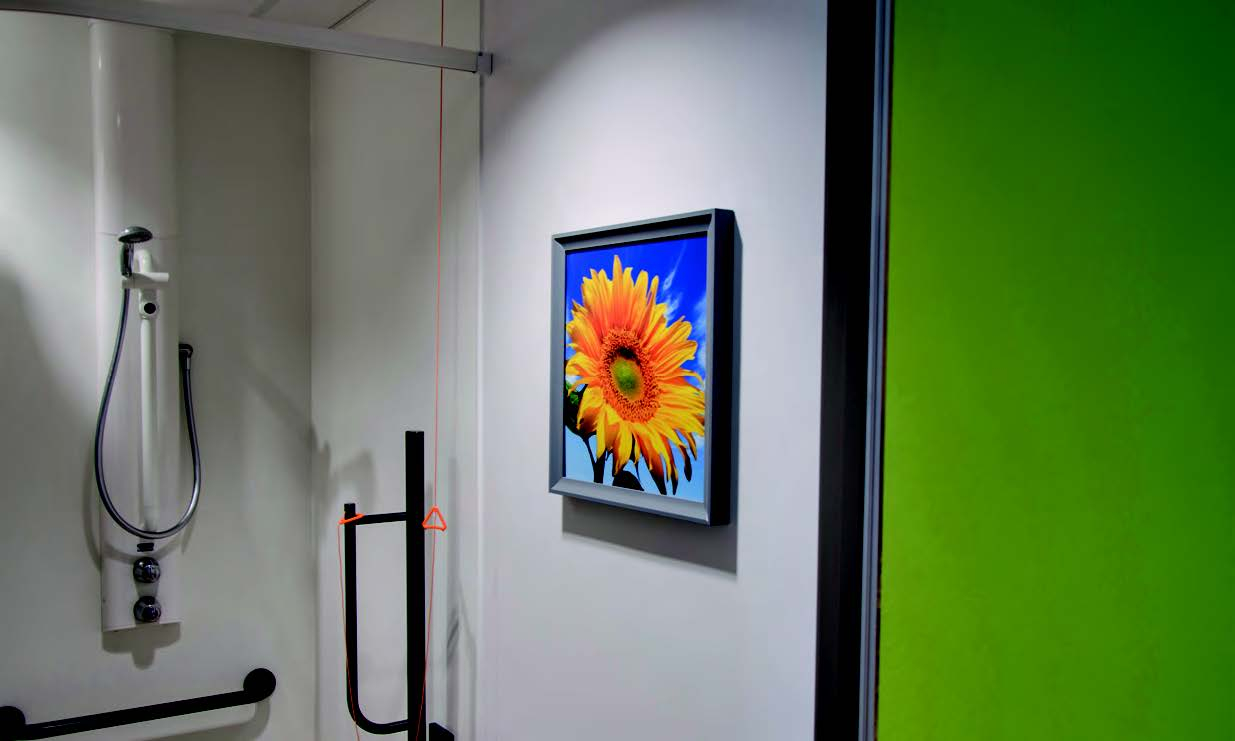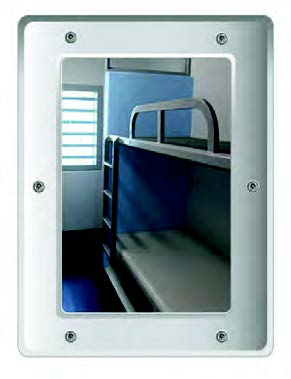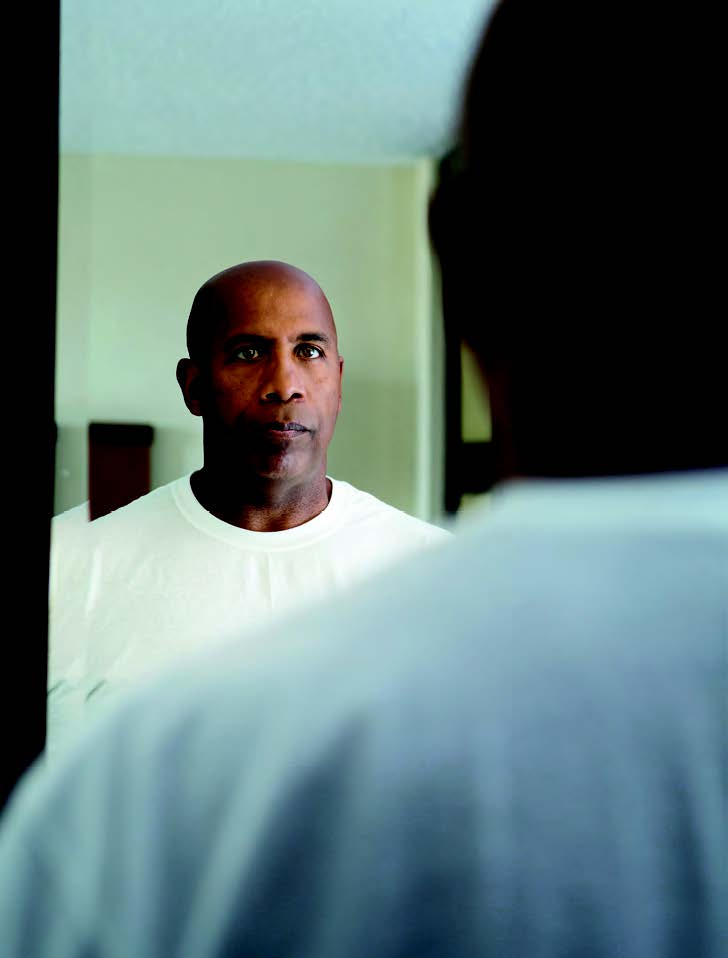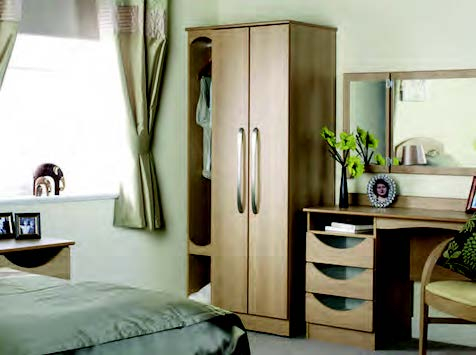
Exploring how a new generation of innovative products is helping to enhance dignity and reduce challenging behaviour in dementia and mental health settings.
We know that the design of homes, hospitals, and public spaces can make a huge difference to people living with dementia.
But now there is increasing realisation that individual fixtures and fittings can also have great impact.
Mirrors – an often-overlooked product
Tony Stead, business development manager at New Vision, explains, “Mirrors are a problem for people with dementia because, for many, the person looking back from the mirror bears no resemblance to their perception of themselves, who they imagine to be much, much younger. Their assumption, then, is that it’s a stranger in their room and that can be very frightening.”
A spokesman for the Alzheimer’s Society agrees adding, “Mirrors can even cause some people to avoid rooms and become disorientated.
"However, some people with dementia may still want to use and access a mirror for personal care. It is, therefore, important for care homes to be designed in a way that can be adapted to meet the needs of an individual.”
In practice, staff don’t have the time to be putting up, or taking down, pictures and mirrors every time the occupant of a room changes.
Dementia-friendly mirrors
New Vision
New Vision’s recently launched the Reversible Mirror.
It is designed as a frame and an insert with a mirror on one side and a dementia-friendly picture on the reverse. Once mounted to the wall, it can easily be switched.
Stead points out that “the value of having the dementia-friendly picture on the reverse of the mirror is that you’re not taking something away from a person living with dementia; you’re simply swapping it for something else.”
And, as the mirror is fabricated from a polycarbonate material, it is shatterproof and lightweight.
“A flexible solution that allows people to choose is the ideal strategy for dementia environments,” said Stead.



The Reinforced Bed Company
The Reinforced Bed Company has launched the Harley Dementia Folding Wall Mirror, which has the option of being folded closed so the reflective surface cannot be seen.
Beyond dementia care environments
Mental health facilities, too, are increasingly utilising this new generation of mirrors.
Tough Furniture
In recent months Tough Furniture has seen orders for its anti-ligature mirrors increasing.
Area sales manager, Kevan Johnson, explained, “With mental health patients, it’s important that when looking in a mirror, they see a true image of themselves, so we design mirrors to be scratchproof.
Another key design feature is that they are robust as they are made of polycarbonate. They cannot be smashed or dismantled and used as a weapon or to self-harm.
Products are press produced, with soft edges. They are designed to be anti-ligature and can be fixed to the wall with anti-ligature fixings.
The Anti-Ligature Shop
The Anti-Ligature Shop have a range of safety mirrors for challenging environments.
A spokesman said: “When designing products for mental health environments, it’s about robustness. Most of our mirrors are polycarbonate, which is 200 times more shatter resistant, and that’s key as it means they can’t be smashed and sharp edges created. They are also anti-scratch and anti-ligature.”
The mirrors can be specified with holes for anti-ligature screw fittings, or can be stuck directly onto the wall.
For dementia care environments, the company is currently working on a reversible option, with a prototype expected in the coming months.
Other design features
Both the Anti-Ligature Shop and Tough Furniture offer a longer version of their mirrors.
The Anti-Ligature Shop spokesman said, “Environmental inspections will mark you down if you don’t provide a mirror. And, as females want to do their hair or make-up, you can’t just have tiny mirrors. A lot of places want full-length options.”
And, with the focus on hotel-style interiors, different shapes are also being specified, including oval and round mirrors, which help to make the environment less institutional.
“When we design a new product, it’s about asking ourselves, what would we want in our home and how can we make that safe for people with mental health problems,” said the spokesman.